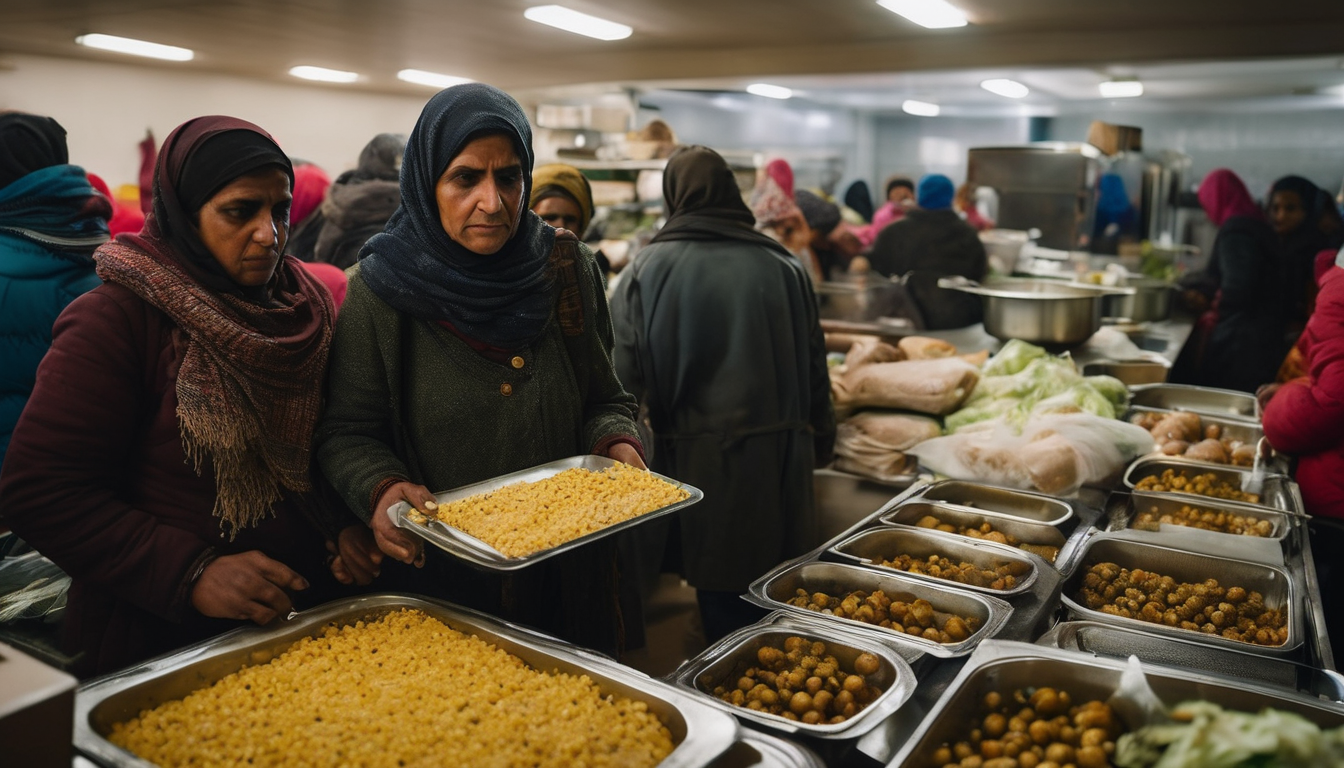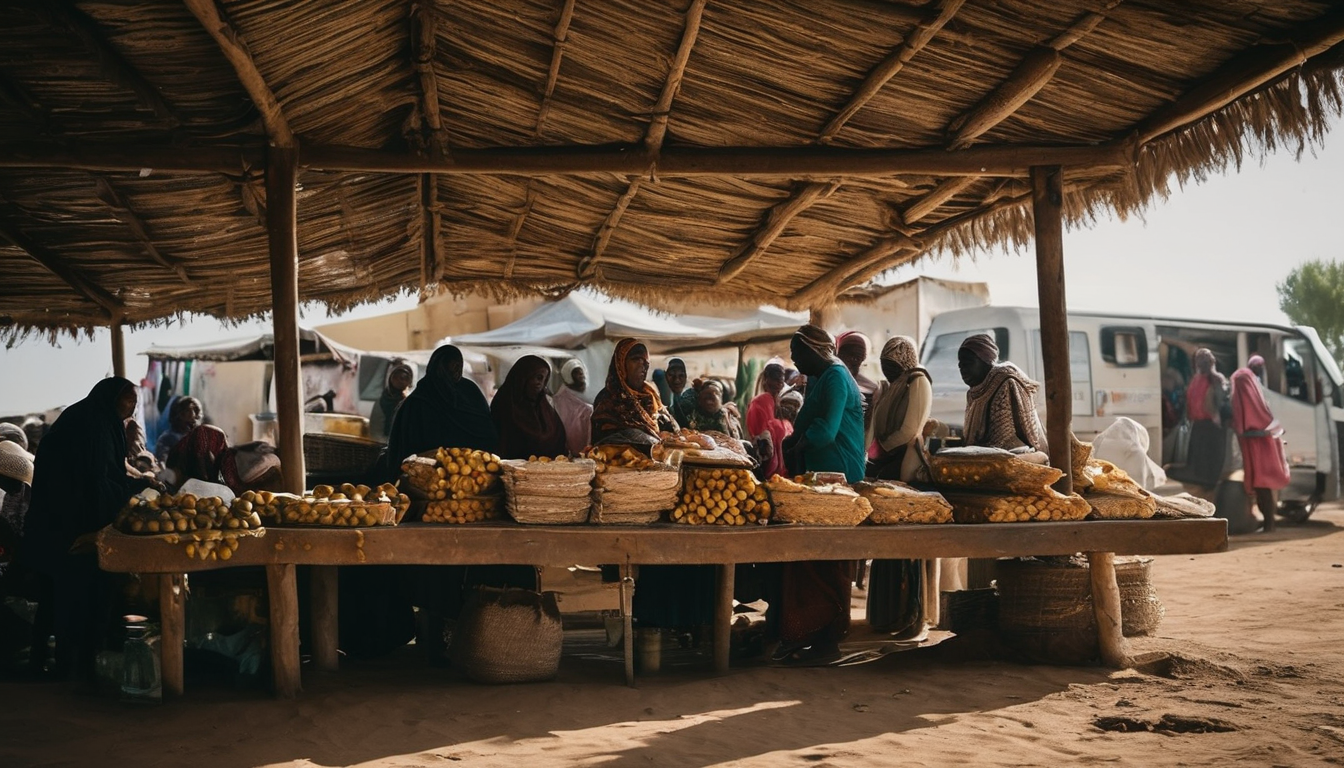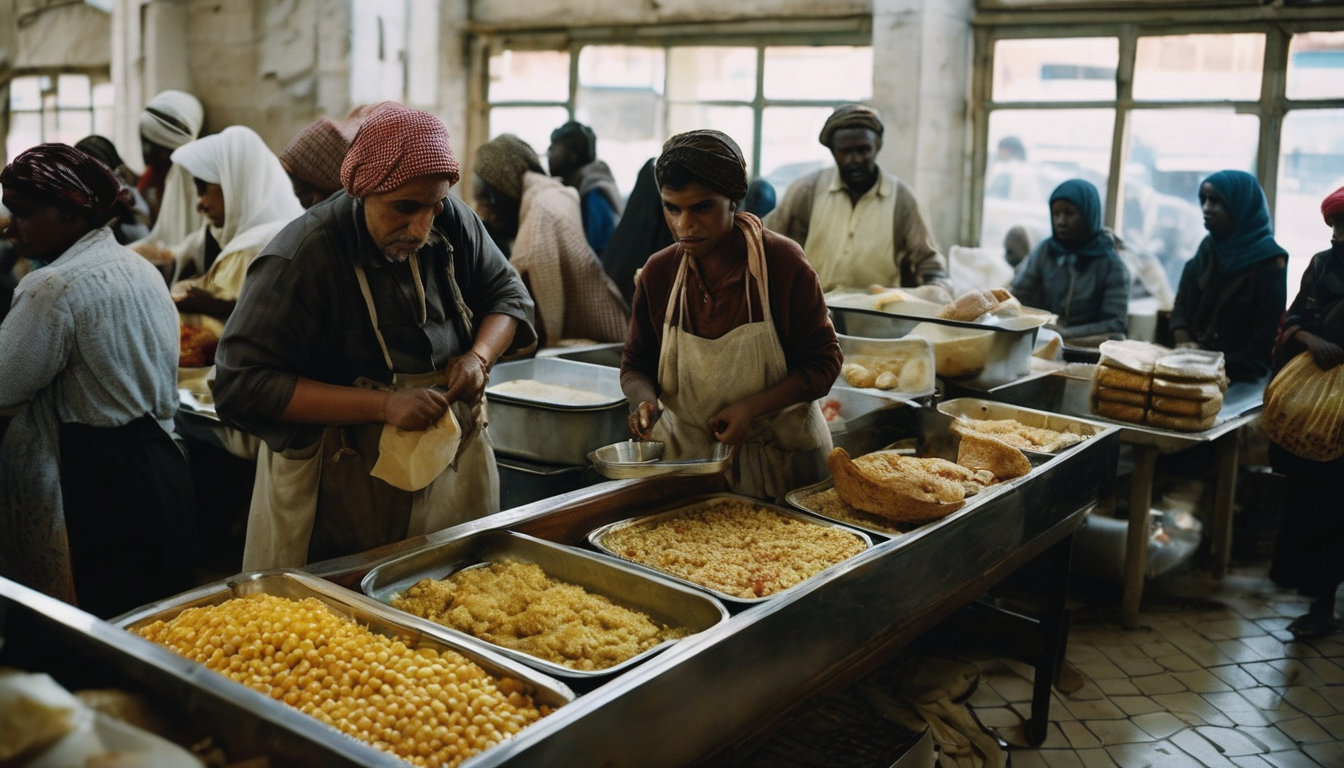
A recent study in Utah has uncovered a paradox in the resettlement of refugees: finding a job can increase food insecurity. This counterintuitive finding highlights the complex challenges refugees face as they integrate into their new communities.
Background
Refugees arriving in the United States often face severe food insecurity, with rates as high as 85% in particularly vulnerable groups. The transition to a new country brings numerous uncertainties, including language barriers and unfamiliar social norms, exacerbating these challenges.
Resettlement agencies prioritize job placement to foster self-sufficiency, but the initial employment often comes with unstable and low wages. This income level frequently disqualifies refugees from Supplemental Nutrition Assistance Program (SNAP) benefits, leaving a gap in financial support.
The problem is compounded by the requirement for refugees to renew their SNAP benefits every six months, a process many are unaware of or do not fully understand. Misinformation or lack of knowledge can result in prolonged periods without crucial assistance.
Key Developments

Researchers from the University of Utah Health interviewed refugees from eight countries to identify the times when food insecurity was most pronounced. Their findings revealed several unexpected
danger zonesin the resettlement process:
- New job leads to loss of SNAP eligibility due to income.
- Refugees often lack awareness of SNAP renewal processes.
- Persistent unemployment amidst unstable first jobs.
- Lack of information on food bank locations and other resources.
This study underscores the critical need for tailored assistance programs that account for the unique challenges refugees face in the job market and social integration.
Industry/Market Context
The scarcity of employment opportunities and the non-intuitive U.S. job market pose significant hurdles for refugees. Many struggle to find stable employment, leading to fluctuations in their income and, consequently, their ability to access food assistance programs.
The study also highlights the economic burden of food insecurity, which costs the U.S. healthcare system over $53 billion annually. Addressing this issue could therefore have both humanitarian and economic benefits.
Efforts to support refugees through informational assistance and access to alternative food sources are being explored by organizations like New Roots, which connects refugees with gardening opportunities. These initiatives aim to equip refugees with the skills and resources needed to be self-sufficient.
Implications & Risks
The findings from the study put a spotlight on the unintended consequences of well-meaning policies aimed at promoting self-sufficiency. The sudden loss of benefits can leave refugees in a precarious position, with insufficient income to cover basic needs like food.
Misunderstandings about benefit renewal processes can lead to protracted periods without necessary assistance, complicating the resettlement process and increasing food insecurity. This underscores the importance of clear communication and targeted support services.
Moreover, the broader implications of these findings extend to the economic landscape, as high levels of food insecurity contribute to increased healthcare costs and reduced workforce productivity. Addressing these issues is crucial for both individual well-being and national economic stability.
What’s Next

Future research will continue to explore the nuances of refugee resettlement and job integration, with a focus on refining support systems to mitigate food insecurity. Collaboration between resettlement agencies, community partners, and refugee organizations is essential for developing effective strategies.
Improving information access and promoting opportunities for self-sufficiency through gardening and other means can make a significant difference in the lives of refugees. These interventions can provide a safety net during transitions and help refugees become active, contributing members of their new communities.
Nasser Sharareh, the lead researcher, emphasizes the need for continued collaboration and innovation in addressing food insecurity. By ensuring refugees have the information they need, communities can better support this vulnerable group as they navigate their new lives in the United States.
Ultimately, the goal is to create a cohesive resettlement strategy that not only promotes self-sufficiency but also protects against the economic and health risks associated with food insecurity. These efforts can foster stronger, more resilient communities for all residents.






